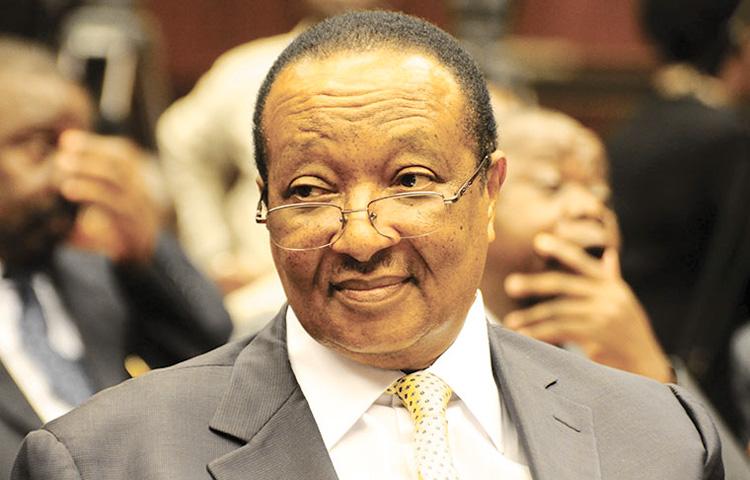How CA delegates handled federal debate
At the end of the debate, a system that gave districts powers to cooperate was agreed upon. However, Mengo, the seat of the Buganda kingdom, did not like it. They preferred the arrangement of the 1962 independence constitution, which gave Buganda federo
How CA delegates handled federal debate
________________
During the constitution-making process, the demand for federo was one of the thorny issues that Constituent Assembly (CA) delegates battled with.
At the end of the debate, a system that gave districts powers to cooperate was agreed upon. However, Mengo, the seat of the Buganda kingdom, did not like it. They preferred the arrangement of the 1962 independence constitution, which gave Buganda federo — with power to control agriculture, education and road networks within the region.
So, the fallout during the CA was notable. For example, several influential CA delegates from Buganda region, such as Prof. Apollo Nsibambi and Besweri Mulondo, were declared traitors.
Prof. Apollo Nsibambi opposed certain Mengo officials who wanted to reject the 1995 Constitution because it had not granted them a federal status. (Credit: Makerere University)
Nsibambi opposed certain Mengo officials who wanted to reject the 1995 Constitution because it had not granted them a federal status.
On the other hand, Mulondo, who they had expected to support federo outrightly, rejected it, noting that he can’t support the move because some of its proponents are Uganda People’s Congress members, which abolished the same.
SNAKE IN THE POT
In his spirited debate against federo, Mulondo famously referred to the whole situation as a snake in the pot, a proverb, he said, captured the catch-22 situation in which Buganda was at the time.
The issue CA delegates had to deal with was whether Uganda should adopt a federal system or maintain a unitary government. Delegates also had to decide how much power regions and traditional authorities would hold relative to the central government.
The debate was particularly heated when it came to Buganda and other historic kingdoms, whose leaders argued for greater autonomy. Some delegates, especially from Buganda, supported a federal system, often referred to as ‘federo.’
They argued that federalism would allow regions to manage their own affairs, preserve cultural heritage and address historical grievances stemming from the 1960s, when centralised power marginalised certain communities.
Rubaga South delegate, John Ken Lukyamuzi, argued at the time that those who oppose federalism fear the democratic competition it entails. He cited countries like Japan, Germany, the US and Malaysia, attributing their economic growth to the federal system of government.
On the other hand, the late Prof. George Wilson Kanyeihamba emphasised the challenges of balancing regional autonomy with central authority. He noted that while federalism can offer benefits such as local self-governance and cultural preservation, it also poses risks of fragmentation and potential conflicts between levels of government, which can complicate national unity and governance.
Some CA delegates even framed federalism as a matter of national survival, warning that federo could “tear Uganda apart”.
DECENTRALISATION ADOPTED
In his report, the chairperson of the Uganda Constitution Commission (UCC), former chief justice Benjamin Odoki, recommended a unitary system with limited decentralisation. This compromise, Odoki explained, aimed at balancing regional aspirations with the need for a strong and cohesive central government.
Ultimately, the 1995 Constitution adopted a unitary framework while providing for local government decentralisation. Districts and sub-counties were empowered to manage local affairs, giving citizens a measure of self-governance without creating fully federal states.
The compromise also recognised traditional and cultural institutions, including kingdoms such as Buganda, Bunyoro, Toro and Busoga, but strictly as cultural, not political entities under Article 246.
This decision was seen as a major defeat for the Buganda delegates, who felt their historical claims had been sidelined. To this day, the ‘federo question’ continues to influence Uganda’s politics, reflecting the enduring tension between regional autonomy and national unity.
CONSTITUTIONAL RULE
When the National Resistance Army (NRA) overran Kampala under the leadership of President Yoweri Museveni, the journey to transition to constitutional rule started almost immediately with the issuance of Legal Notice No. 1 of 1986.
The legal notice established the legal framework for the NRM Government, vesting legislative powers in the National Resistance Council (NRC) and outlining the code of conduct for the NRA.
The CA, which comprised representatives elected by the people under the chairmanship of James Wapakhabulo on September 22, 1995, promulgated the Constitution, effectively replacing the one of 1967.
In the run-up to October 7, New Vision will publish stories that showcase the country’s progress under the Constitution.
VISION GROUP MAGAZINE
To commemorate the 30th anniversary of Uganda’s Constitution promulgation, Vision Group will on October 7 publish a comprehensive magazine that highlights the milestones covered under the Constitution.